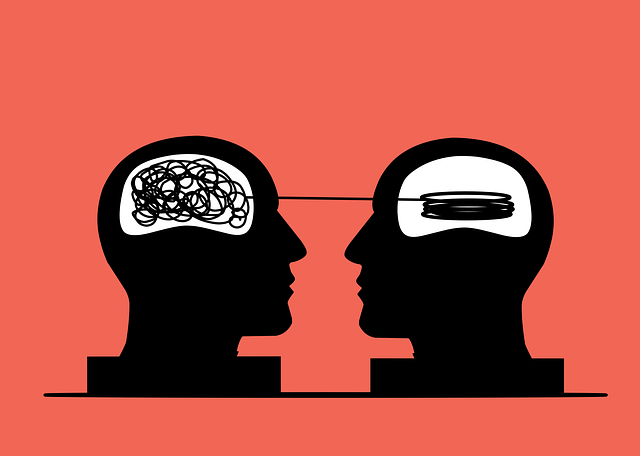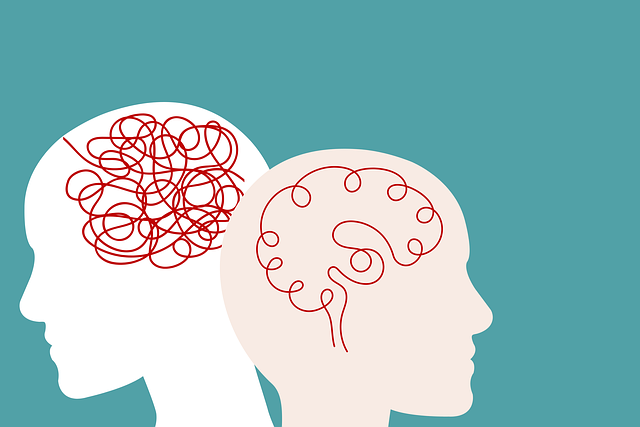Emotion regulation through Arvada Post-Traumatic Stress Disorder Therapy (APTDT) is a vital tool for mental well-being, addressing stress, anxiety, and PTSD. APTDT combines education, community outreach, and culturally sensitive approaches to enhance therapy engagement and outcomes. Key strategies include identifying triggers through observation and reflection, developing coping mechanisms, and utilizing calming techniques like deep breathing and mindfulness meditation. Cognitive restructuring, coaching, and empathy building further improve emotion regulation by challenging negative thought cycles. Mindfulness and self-care practices, such as meditation and breathing exercises, empower individuals to manage emotions effectively, fostering mental wellness and resilience.
Emotion regulation techniques are essential tools for managing mental health, especially for those dealing with conditions like post-traumatic stress disorder (PTSD). This comprehensive guide explores effective strategies to understand and navigate emotional responses. We delve into identifying triggers, calming mind and body, challenging negative thoughts, and the vital role of mindfulness and self-care. By mastering these techniques, individuals in Arvada can enhance their well-being and overcome the challenges posed by PTSD.
- Understanding Emotion Regulation and Its Impact on Mental Health
- Identifying Triggers: Recognizing Patterns in Emotional Responses
- Techniques for Calming the Mind and Body: A Comprehensive Guide
- Cognitive Strategies to Challenge Negative Thought Cycles
- The Role of Mindfulness and Self-Care in Long-Term Regulation
Understanding Emotion Regulation and Its Impact on Mental Health

Emotion regulation is a vital skill that enables individuals to manage and control their emotional responses effectively. It plays a crucial role in maintaining good mental health, as it helps individuals cope with stress, anxiety, and even post-traumatic stress disorder (Arvada Post-Traumatic Stress Disorder Therapy). By understanding and regulating emotions, people can improve their overall well-being and enhance their ability to navigate life’s challenges.
In the context of mental healthcare, teaching emotion regulation techniques is a game-changer. It empowers individuals to take charge of their emotional health, especially those with underlying conditions like PTSD. Through community outreach program implementation, mental health professionals can offer valuable support and education, ensuring a risk assessment for potential issues. Additionally, cultural sensitivity in mental healthcare practice is essential, as it creates an inclusive environment where diverse populations feel understood and respected, fostering better engagement and outcomes in emotion regulation therapy.
Identifying Triggers: Recognizing Patterns in Emotional Responses

Identifying triggers is a crucial step in managing and regulating emotions, especially for those dealing with post-traumatic stress disorder (Arvada Post-Traumatic Stress Disorder Therapy). By recognizing patterns in emotional responses, individuals can gain insight into what sets off their intense feelings. This process involves paying close attention to one’s surroundings and internal reactions. For instance, certain environments, conversations, or even specific memories might evoke strong emotional reactions, such as anxiety or anger.
Understanding these triggers is the first step towards building resilience (Resilience Building) and fostering mental wellness (Mental Wellness). Once identified, individuals can work on developing strategies to cope with these triggers, thereby improving their self-care routine (Self-Care Routine Development for Better Mental Health) and overall emotional well-being. This may involve learning to recognize early warning signs of an impending emotional reaction and implementing healthy coping mechanisms to navigate through challenging situations.
Techniques for Calming the Mind and Body: A Comprehensive Guide

Calming the mind and body is a crucial aspect of emotion regulation techniques teaching, especially for those dealing with post-traumatic stress disorder (Arvada Post-Traumatic Stress Disorder Therapy). Techniques such as deep breathing exercises, progressive muscle relaxation, and mindfulness meditation are effective tools to help individuals manage stress and anxiety. These practices not only provide immediate relief but also contribute to long-term emotional healing processes by fostering a sense of calm and control.
Cultural sensitivity in mental healthcare practice plays a significant role in these techniques. Understanding and incorporating cultural aspects into therapy sessions ensures that each individual receives personalized support, addressing their unique experiences and beliefs. This tailored approach enhances the effectiveness of trauma support services, making them more accessible and beneficial for diverse populations.
Cognitive Strategies to Challenge Negative Thought Cycles

Cognitive strategies play a pivotal role in challenging and disrupting negative thought cycles, offering powerful tools for emotion regulation. One effective approach is cognitive restructuring, where individuals learn to identify and challenge distorted or unhelpful thoughts. For instance, in cases of post-traumatic stress disorder (PTSD) therapy in Arvada, therapists may help clients recognize all-or-nothing thinking patterns, such as “I failed completely” after a set-back, and replace them with more balanced statements like, “I made a mistake, but I can learn from it.” This reframing process empowers individuals to develop a more positive self-perception.
Additionally, coping skills development through mental wellness coaching programs emphasizes the importance of problem-solving and adaptive thinking. Empathy building strategies within these programs encourage clients to consider alternative perspectives, thus fostering resilience in the face of adversity. By learning to challenge negative thought cycles, individuals gain a sense of control over their emotions, leading to improved mental wellness.
The Role of Mindfulness and Self-Care in Long-Term Regulation

Mindfulness and self-care practices play a pivotal role in long-term emotion regulation, especially when integrated into comprehensive mental health education programs design. Techniques such as meditation, deep breathing exercises, and mind-body awareness enhance an individual’s ability to manage their emotional responses, particularly during stressful situations or when dealing with conditions like post-traumatic stress disorder (Arvada Post-Traumatic Stress Disorder Therapy). Regular engagement in these practices cultivates mental wellness by fostering self-awareness, promoting better emotional understanding, and enabling individuals to respond adaptively rather than reacting impulsively.
By prioritizing self-care, individuals can improve their overall mental health, including enhanced self-esteem. This proactive approach supports sustained emotional balance, boosts resilience, and encourages a positive mindset. Incorporating mindfulness into daily routines allows for continuous practice and refinement of emotion regulation skills, ultimately contributing to improved quality of life and better coping mechanisms in the long run.
Emotion regulation techniques are powerful tools for enhancing mental health and well-being. By understanding our emotional responses, identifying triggers, and employing various calming strategies, we can effectively manage stress, anxiety, and even post-traumatic stress disorder (Arvada Post-Traumatic Stress Disorder Therapy). The cognitive strategies outlined in this guide empower individuals to challenge negative thought patterns, fostering a sense of control and resilience. Incorporating mindfulness practices and self-care routines ensures long-term emotional regulation, enabling folks to lead more balanced and fulfilling lives.














